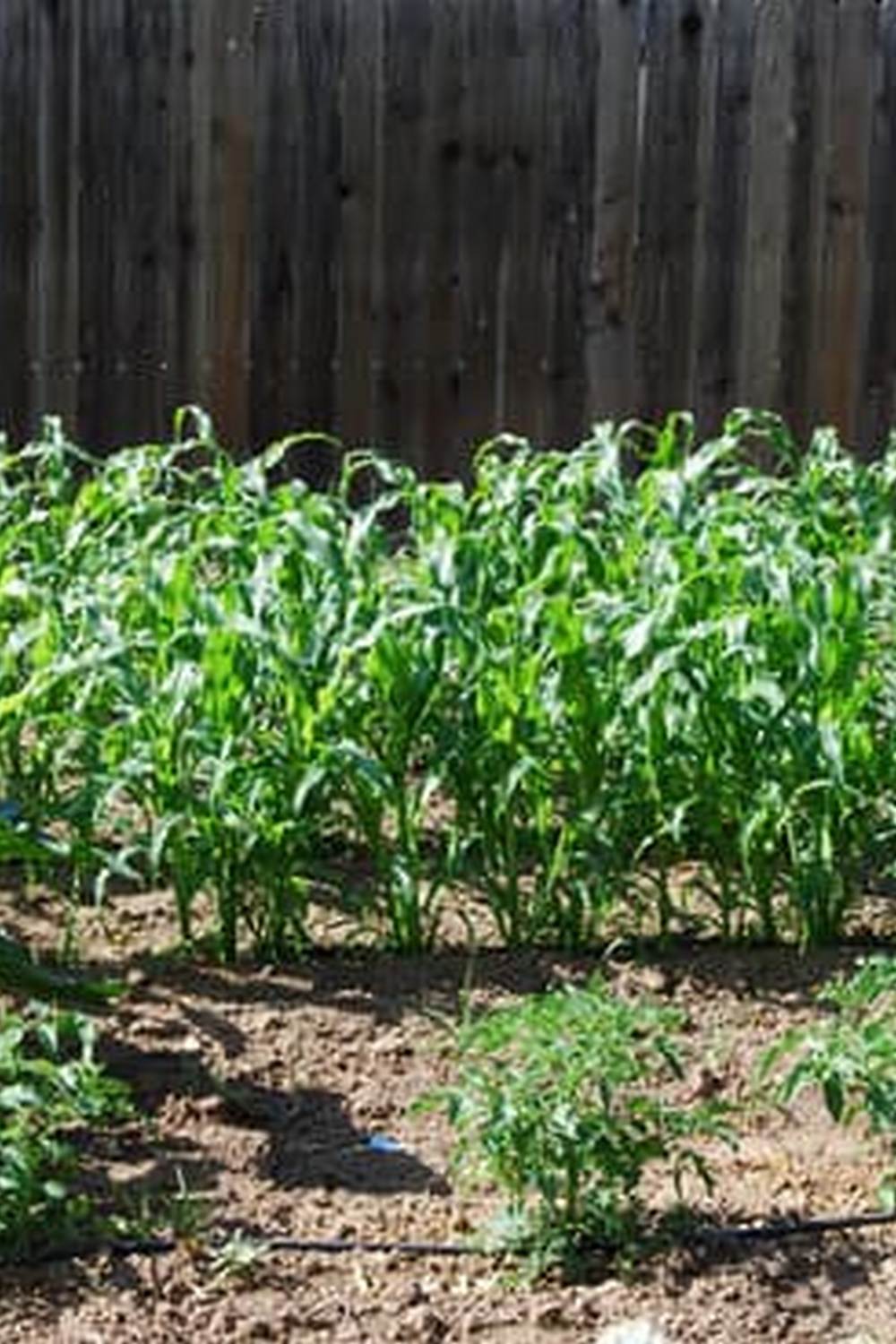Homeowners’ Associations (HOAs) play a significant role in maintaining community standards and property values in Florida. However, questions have emerged regarding their authority to restrict residents from planting vegetable gardens on their properties.
The recent implementation of a new law in Florida has sparked discussions about the limitations and exceptions surrounding this issue. In this article, we will delve into the complexities of HOA regulations, explore Florida’s new law, and examine the rights of homeowners when it comes to cultivating vegetable gardens on their premises.
Florida’s new law regarding HOA restrictions on vegetable gardens has brought attention to the rights of homeowners who wish to grow their own produce. Understanding the specific provisions and limitations outlined in this law is crucial for both homeowners and HOAs alike. This article seeks to unravel the intricacies of these regulations and shed light on what they mean for individuals seeking to cultivate vegetable gardens within their community.
In exploring the limitations and exceptions under Florida’s new law, we will address the concerns raised by homeowners facing restrictions imposed by HOAs on their vegetable gardens. By examining the legal framework and potential remedies available to homeowners within this context, we aim to provide insights into navigating the evolving landscape of vegetable gardening in HOA communities across Florida. Stay tuned as we delve deeper into this timely issue affecting countless residents statewide.
Overview of Florida’s New Law Regarding HOA Restrictions on Vegetable Gardens
Following the passing of a new law in Florida, homeowners’ associations (HOAs) are now prohibited from enforcing any rules or regulations that would outrightly prevent residents from having vegetable gardens on their property. This marks a significant shift in the authority previously held by HOAs in regulating the use of residential properties within their communities.
The new law, also known as the “Vegetable Garden Bill,” was signed into effect to protect the rights of homeowners who wish to cultivate their own edible produce. It essentially allows Floridians to grow fruit and vegetables for personal use on their own properties, even if they live within an HOA neighborhood with pre-existing restrictions on garden installations.
In addition to asserting the right of individuals to grow their own produce, the Vegetable Garden Bill also lays out specific guidelines for how these gardens should be maintained. For instance, it permits HOAs to implement reasonable rules regarding the location and size of vegetable gardens, ensuring that they do not become a nuisance or eyesore in the community. This balance between individual rights and community standards is an important aspect of the new law.
| New Law Name | Vegetable Garden Bill |
|---|---|
| Main Purpose | Protects homeowners’ rights to have vegetable gardens on their property despite HOA regulations. |
| Guidelines | The bill sets guidelines for where and how vegetable gardens can be located and maintained within an HOA community. |
Can HOA Prohibit Vegetable Gardens? Exploring the Limitations and Exceptions Under Florida’s New Law
HOAs in Florida have historically held significant authority over homeowners, including the ability to impose restrictions on various aspects of property use. However, a recent law in Florida has brought about important changes regarding HOA limitations on vegetable gardens. It is crucial for homeowners to understand these new regulations and how they may impact their rights to cultivate vegetable gardens on their properties.
The new law in Florida now prohibits HOAs from outrightly banning vegetable gardens. However, there are some limitations and exceptions that homeowners should be aware of. For example, the law may allow HOAs to regulate the location and size of vegetable gardens, as well as implement guidelines for their maintenance. Understanding these limitations is important for homeowners who wish to establish or maintain vegetable gardens on their properties while avoiding conflicts with their HOAs.
Furthermore, this legislation also emphasizes the importance of promoting sustainable and environmentally-friendly practices within residential communities. Vegetable gardens not only provide homeowners with a source of fresh produce but also contribute to biodiversity and ecological balance. As such, it is crucial for both homeowners and HOAs to find common ground in fostering a more sustainable living environment while respecting each other’s rights and responsibilities.
| Law Restrictions | Description |
|---|---|
| Outright Ban | Prohibited under new law. |
| Location and Size Regulations | Allowed under new law. |
The Importance of Vegetable Gardens for Homeowners and the Environment
Vegetable gardens play a crucial role in not only providing homeowners with fresh produce, but also in promoting environmental sustainability. Here are some key reasons why vegetable gardens are important for homeowners and the environment:
- Health Benefits: Vegetable gardens encourage homeowners to consume more fresh and nutritious produce, leading to better health and well-being.
- Environmental Impact: Growing vegetables at home reduces the carbon footprint associated with transporting produce from farms to grocery stores, contributing to lower greenhouse gas emissions.
- Food Security: In times of crisis or food shortages, having a vegetable garden can provide a reliable source of fresh food for homeowners and their families.
Moreover, maintaining a vegetable garden also supports biodiversity by providing a habitat for various pollinators and beneficial insects. This can help restore ecological balance in urban environments where green spaces are often limited.
Ultimately, vegetable gardens promote a sense of self-sufficiency and connection to nature for homeowners. By fostering an appreciation for the environment and sustainable living practices, vegetable gardens contribute to the overall well-being of both individuals and the larger community.
Differences Between Ornamental Gardens and Vegetable Gardens
When it comes to navigating HOA guidelines and regulations for gardening in Florida, homeowners often face restrictions and limitations on what they can plant in their yards. One of the key distinctions that homeowners need to be aware of is the difference between ornamental gardens and vegetable gardens, as this can impact HOA regulations.
It’s important for homeowners to understand that while ornamental gardens are typically focused on flowers, shrubs, and other decorative plants, vegetable gardens are specifically intended for growing edible produce such as fruits, vegetables, and herbs. This is a crucial distinction because HOAs may have specific rules and guidelines in place for each type of garden.
Here are some key differences between ornamental gardens and vegetable gardens when it comes to HOA regulations:
- Plant Types: Ornamental gardens may include a variety of flowers, shrubs, and non-edible plants for aesthetic purposes. On the other hand, vegetable gardens focus on growing plants that produce edible produce.
- Aesthetic Standards: HOAs often have strict aesthetic standards in place for front yards and visible areas within the community. While ornamental gardens may need to adhere to these standards, there may be additional restrictions or guidelines specifically related to the appearance of vegetable gardens.
- Maintenance Requirements: HOAs may have specific maintenance requirements for both ornamental and vegetable gardens. However, the level of care and upkeep required for a vegetable garden could differ from an ornamental garden due to the nature of growing edible produce.
Legal Remedies for Homeowners Facing HOA Restrictions on Vegetable Gardens
The recent changes in Florida’s law regarding HOA restrictions on vegetable gardens have brought about important considerations for homeowners facing limitations imposed by their homeowner’s association. While the new law does provide certain allowances for vegetable gardens, there may be instances where homeowners find themselves at odds with their HOA. In such cases, it is crucial to understand the legal remedies available to homeowners in addressing HOA restrictions on vegetable gardens.
Understanding the Rights of Homeowners
Homeowners should first familiarize themselves with the specific rights and responsibilities outlined in the new Florida law related to HOA restrictions on vegetable gardens. By understanding these rights, homeowners can better advocate for their ability to maintain a vegetable garden on their property within the scope of the law.
Seeking Legal Counsel
In situations where homeowners are facing unjust or unreasonable restrictions from their HOA regarding their vegetable garden, seeking legal counsel may be a viable option. An experienced attorney can help assess the situation and provide guidance on how to challenge HOA restrictions within the parameters of the law.
Engaging in Mediation or Arbitration
Another potential remedy for homeowners facing HOA restrictions on vegetable gardens is to engage in mediation or arbitration with the homeowner’s association. These alternative dispute resolution methods can provide an opportunity for both parties to reach a mutually acceptable solution while avoiding costly and time-consuming litigation.
Overall, homeowners confronted with restrictive policies from their homeowner’s association regarding vegetable gardens should be aware of their options when it comes to legal recourse. By understanding their rights, seeking legal counsel when necessary, and exploring alternative dispute resolution methods, homeowners can effectively address and potentially challenge unjust HOA restrictions, ensuring that they can continue enjoying the benefits of maintaining a vegetable garden on their property.
Tips for Homeowners on How to Navigate HOA Guidelines and Regulations for Vegetable Gardens
Homeowners who want to cultivate a vegetable garden in their HOA community should be familiar with the guidelines and regulations set by the association. The first tip for navigating these rules is to carefully review the HOA’s governing documents, including the declaration of covenants, conditions, and restrictions (CC&R), as well as any architectural guidelines.
These documents outline the specific rules and regulations that homeowners must adhere to when it comes to landscaping and gardening, including limitations on the types of plants allowed.
Next, homeowners should communicate with their HOA board or management company to understand their specific requirements for vegetable gardens. This may involve submitting a formal proposal outlining the intended location, design, and size of the vegetable garden. It’s important for homeowners to demonstrate that their garden will not violate any existing regulations and will aesthetically enhance the community.
In some cases, seeking legal advice from a real estate attorney who is experienced in HOA matters may be necessary. An attorney can provide valuable insight into local laws and property rights, as well as offer guidance on how to navigate conflicts with the HOA regarding vegetable gardens.
Additionally, joining forces with like-minded neighbors who also support vegetable gardening can strengthen homeowners’ position when negotiating with the HOA. By working together, residents can advocate for changes to existing rules and promote sustainable gardening practices within their community.
Case Studies
In recent years, there have been several instances of homeowners in Florida challenging their HOA’s restrictions on vegetable gardens. These cases have shed light on the limitations and exceptions under Florida’s new law regarding HOA restrictions on vegetable gardens. It is important to examine these real-life examples to understand the legal remedies available to homeowners facing similar challenges.
Case Study 1: The Smith Family
The Smith family, residents of a gated community in Florida, decided to start a small vegetable garden in their backyard. They carefully followed the guidelines set by the local government regarding gardening and ensured that the garden was well-maintained and did not affect the aesthetics of the neighborhood.
Despite their efforts, the HOA issued a notice demanding the removal of the vegetable garden, citing a violation of the community’s landscaping regulations. The Smith family decided to challenge this decision, arguing that Florida’s new law allowed them to maintain a vegetable garden on their property.
Case Study 2: The Johnsons’ Legal Battle
Another notable case involved the Johnsons, who encountered resistance from their HOA when they sought to convert a section of their front yard into a vegetable garden. The HOA claimed that such modifications were prohibited under their rules and regulations, regardless of Florida’s new law. The Johnsons decided to take legal action against the HOA, arguing that they had the right to cultivate a sustainable and environmentally-friendly vegetable garden on their property.
These case studies showcase both the challenges and successes that homeowners have experienced when confronting HOA restrictions on vegetable gardens in Florida. It is evident that while some HOAs are willing to adapt to Florida’s new law and permit limited vegetable gardening activities, others continue to enforce stringent regulations without considering homeowners’ rights or environmental benefits.
Conclusion
In conclusion, the new law in Florida regarding HOA restrictions on vegetable gardens has opened up opportunities for homeowners to assert their rights when it comes to cultivating their own produce. While HOAs still have some authority to regulate gardening practices, the limitations and exceptions under the new law provide a significant level of protection for homeowners who wish to maintain vegetable gardens on their property.
This is a positive step towards promoting sustainable and environmentally friendly practices within HOA communities.
It is important for homeowners to recognize the significance of vegetable gardens not only for their own well-being but also for the environment. Growing one’s own produce can lead to reduced carbon footprint, decreased reliance on commercially grown crops, and increased access to fresh and nutritious food. Therefore, it is crucial for homeowners to advocate for their rights to maintain vegetable gardens as part of a larger effort towards promoting sustainability and self-sufficiency.
As we move forward, it is essential for homeowners to educate themselves about the legal remedies available to them when faced with unreasonable HOA restrictions on vegetable gardens. By understanding their rights and responsibilities, homeowners can effectively navigate through HOA guidelines and regulations while safeguarding their ability to cultivate vegetable gardens. With continued advocacy and awareness, the future of vegetable gardening in HOA communities in Florida looks promising, with an increasing number of homeowners empowered to pursue sustainable living practices.
Frequently Asked Questions
What Is the Vegetable Garden Bill in Florida?
The Vegetable Garden Bill in Florida, also known as the “Right to Farm” bill, aims to protect the rights of residents to grow vegetables and fruit trees on their property. This bill was passed in 2019 and prohibits local governments from enacting ordinances that restrict vegetable gardens on residential properties.
Can You Grow Vegetables in Your Front Yard in Florida?
Yes, you can grow vegetables in your front yard in Florida. With the passing of the Vegetable Garden Bill, residents are allowed to cultivate vegetable gardens in their front yards without fear of local government regulation. This has given homeowners more freedom to use their land for gardening purposes.
Can You Have a Vegetable Garden Year Round in Florida?
In Florida, it is possible to have a vegetable garden year round due to the state’s mild climate and relatively warm temperatures during the winter months. This allows for a longer growing season compared to other states with colder climates.
Residents can take advantage of this by planting certain vegetables at different times throughout the year to ensure a continuous harvest.

If you’re looking to get into vegetable gardening, or are just looking for some tips on how to make your current garden better, then you’ve come to the right place! My name is Ethel and I have been gardening for years. In this blog, I’m going to share with you some of my best tips on how to create a successful vegetable garden.





